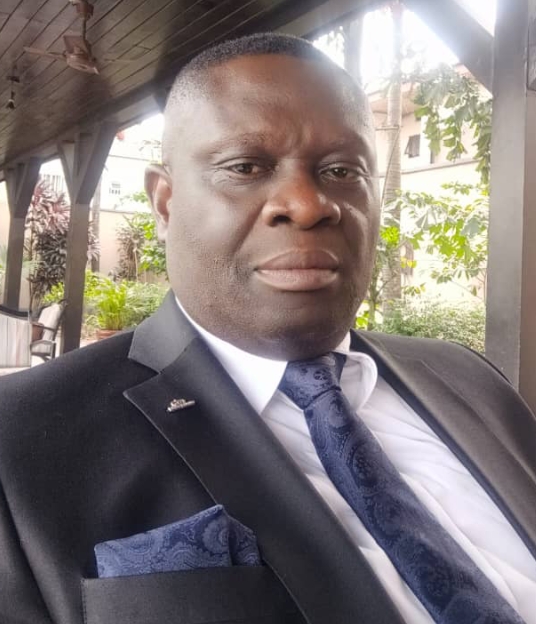By Dr Gabriel Nwambu
**Abstract**
The launch of Ibrahim Badamasi Babangida’s autobiography, “A Journey in Service,” on February 20, 2025, at the Transcorp Hilton in Abuja, marks a critical juncture in Nigeria’s political narrative.
While the book offers insights into Babangida’s life, his controversial past raises urgent questions about accountability, justice, and the prospects for Nigeria’s future.
As Nigeria seeks to grapple with its historical challenges, the call for Babangida to face consequences for his actions has never been more pertinent. This paper examines the need for accountability as crucial not only for justice but also for the integrity of Nigeria’s democratic foundation.
**Introduction**
Ibrahim Babangida’s persona as a leader encapsulates a troubling chapter in Nigeria’s history. Celebrated by some as a political strategist, his tenure as military head of state is also marked by egregious violations of civil rights and democratic principles. This analysis interrogates the implications of Babangida’s actions throughout his rule, particularly regarding deep-seated issues such as betrayal, the nullification of free elections, and the need for restorative justice in Nigeria.
**The Dark Legacy of Betrayal: The Execution of General Mamman Vasta**
A significant chapter in Babangida’s narrative is the betrayal of General Mamman Vasta, a man he once considered a closest friend. Their relationship, characterized by intimate gestures such as exchanging clothing, was shattered when Babangida accused Vasta of plotting a coup and ordered his execution. The pleas from respected figures in Nigerian society failed to dissuade Babangida from this decision, reflecting a chilling disregard for human life and friendship. The implications of this act extend beyond personal betrayal; they symbolize the treachery embedded within the political fabric of leadership in Nigeria, raising critical questions about loyalty and morality among those in power.
Babangida’s precarious ascent to leadership came through a coup d’état, overthrowing General Muhammadu Buhari, and establishing a regime characterized by manipulation and coercion. Despite ruling with an iron fist, he demanded respect as a democratically elected president, a title that contradicted the reality of his rise to power and governance. The duality of Babangida’s nature as both a strategist and a tyrant complicates the narrative, leading to a legacy fraught with contradictions and injustices.
**The Cynical Nullification of the 1993 Democratic Elections**
One of the most grievous acts of Babangida’s presidency was the denial of the results of the June 12, 1993, elections, widely regarded as the freest and fairest in Nigerian history, won by Chief Moshood Abiola. Nigeria had, for the first time, expressed its democratic will, and yet Babangida nullified the election, leading to a national crisis and significant unrest. The repercussions of this decision continue to resonate across generations, undermining trust in democratic processes and institutions. The tragic outcomes included the untimely deaths of pro-democracy activists, such as Kudirat Abiola, and an atmosphere of political hostility that set Nigeria on the brink of civil strife.
The key players and contributors to this crisis, including Babangida himself, are now deceased, including figures like Professor Humphrey Nwosu and General Sani Abacha. As Babangida now seeks to narrate his perspective from a wheelchair, the timing of the revelations seems more an exercise in self-justification rather than a sincere pursuit of truth and reconciliation.
**The Need for Accountability: A Call to Action**
As Civil Rights Organizations advocate, “A New Nigeria is Possible.” This ideal hinges upon confronting the past and demanding accountability.
Babangida’s actions warrant scrutiny not for the purpose of vengeance but as a vital component of a healing process that Nigerian society so desperately needs. It is essential that those who wielded power and exercised it with impunity face the full weight of the law. Only then can Nigeria embark on a path to genuine democracy, lifting the embers of a fractured past toward a cohesive future.
Moreover, the staggering sum of ₦17 billion raised during the launch of Babangida’s autobiography in a country struggling financially highlights a disconnection between wealth and accountability. This disparity poses a fundamental question about the values that the Nigerian elite perpetuate and the societal implications of such actions.
**Conclusion**
Babangida’s autobiography opens a window into a complex saga of Nigeria’s history, intertwining personal narrative with profound political consequences. However, it does not absolve the former leader from the weight of his legacy, marked by betrayal and the systematic dismantling of democracy. As Nigeria looks to reforge its identity and re-establish its governance structures, it stands as an imperative for the nation to confront its past injustices head-on. To pave the way for a better future, Ibrahim Babangida must face the law, not merely as a pursuit of justice but as a cornerstone of Nigeria’s commitment to democracy, accountability, and human rights for all. Until that day arrives, the specter of an unaddressed past will continue to haunt Nigeria’s political landscape.
Nwambu Gabriel, Ph.D.

